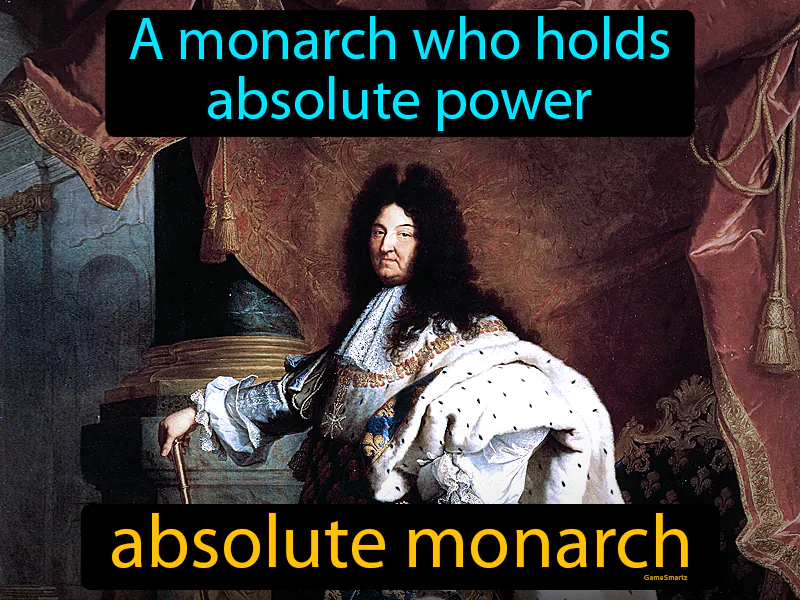Absolute Monarch
Absolute Monarch:
During the Age of Absolutism (1550-1800), an absolute monarch was a king or queen who had complete control over their country, making laws and decisions without needing approval from anyone else, like a parliament. This idea was important because it responded to the chaos and conflicts of earlier times, offering stability and centralized power to strengthen nations. However, absolute power often led to abuses and disregard for the people's needs, sparking ideas about democracy and citizens' rights. Today, this concept matters as it reminds us of the importance of checks and balances in government to prevent any one person from having too much control. For example, if a school principal made all the rules without input from teachers or students, it might lead to unfair policies, highlighting the need for shared decision-making.

Practice Version

Absolute Monarch: A monarch who holds absolute power. Absolute monarch. An absolute monarch is a king or queen who has complete control over their country without any legal or constitutional limitations.
